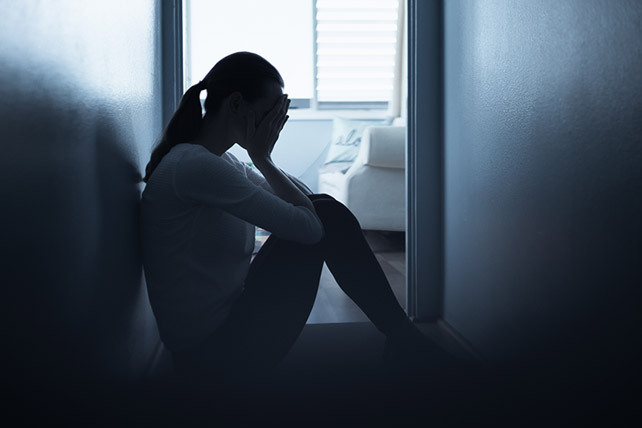Grief is a universal human experience. Everyone experiences loss and, therefore, grief. However, there is relatively little understanding of “how” one should go about grieving. I have spent a lot of time in recent years writing and teaching about grief. I have also spent many hours counseling and coaching people on how to grieve effectively. One of the factors I believe complicates the grief process is that people are often suffering multiple losses.
Generally, people will be most impacted by the death of a loved one. If that death results from a traumatic event, processing the grief can be more challenging. I often work with people whose loved ones die because of a sudden event such as a violent attack, shooting, or natural disaster.
While it is rare, many people today lose multiple family members during a disaster or accident. This type of loss was also the case in the biblical story of Job, as all his children died when the home they were in collapsed because of a natural disaster. Likewise, the current COVID-19 pandemic has taken multiple lives in the same family, church, or community. It is vital for people grieving multiple tragic deaths to also understand that they may be experiencing the impact of trauma. I recommend that professionals address the issues of trauma first because traumatic stress can paralyze the grief process. When death is sudden and traumatic, brain function may be altered in those grieving due to the trauma. The neurobiological changes may impair a healthy grief process, so it is critical to help people work through trauma issues to grieve effectively. Trauma makes us avoid remembering, and healthy grief requires remembering.
The Bible teaches us a great deal about grieving multiple losses, especially in the story of Job. People often mistakenly view grief only as the emotion experienced when a loved one dies. However, grief is a normal reaction to all types of loss, not just death. One of the essential keys to facilitating grieving is helping people recognize their losses and articulate their pain. People are generally aware of their primary losses. Most often, a primary loss is the death of a loved one. It can also be a loss that represents a significant change in life, such as divorce, job loss, or a significant health crisis. However, in almost every situation where someone faces a primary loss, there are also secondary losses. These secondary losses may have a lesser impact but still add to the overall burden of grief. For example, if someone faces the death of a spouse, likely that death may also create financial losses. Grieving widows/widowers are now without their spouses’ income and may have to sell their homes and move as a result, which may also mean a loss of relationships with neighbors and friends. They may have to change churches. Grieving spouses may have to give up hobbies and activities they no longer have time to engage in because they must now function as a single parent.
Grief and Loss Experiences
One of the first steps in supporting those grieving multiple losses is to help them unpack the losses they have experienced. Let me review the most common categories of loss people experience other than death.
Material Loss/Financial Loss. Many people see grief over material or financial losses as shallow, although that thinking misses the essence of what people are genuinely grieving. For the loss of “things,” I do not believe the objects are what people are actually grieving, but instead, they are mourning the memories, relationships, or feelings symbolized by those things. I have learned from working with disaster survivors that the most important items they search for when sifting through a destroyed home’s rubble are photographs. Photos have no cash value and cannot be insured, but they strike at the heart of our material losses with the memories of people we love and days past.
When you stand with those whose homes have been devastated by tornados, hurricanes, floods, and fires, they do not mourn their appliances, expensive electronics, or high-end furniture. Instead, they tell stories of holidays and special anniversaries spent in their homes. They speak of loved ones no longer with them, beautiful memories around their dining room tables, and the hash marks on the door frames marking the growth of their children and grandchildren. With financial loss, people grieve the end of their dreams—dreams for a child’s education or wedding, a home where extended family can gather, or an enjoyable retirement. Those are the losses they are truly grieving, so it is important to help them recognize this and not be ashamed of their sadness.
Relationship Loss. One of the most common causes of grief is the loss of a relationship that is not a result of death but due to a breach or break. Divorce is the most common and can be devastating for all involved, not just marital partners. Children and extended family members also experience a significant loss with the end of a marriage. Friends may even find themselves having to choose who to keep and who to let go. Of course, there are arguments, betrayals, breakups, and church splits that also cause painful estrangement in meaningful connections. Favorable events like getting a new job or moving to a new town can even create separation that leads to loss.

